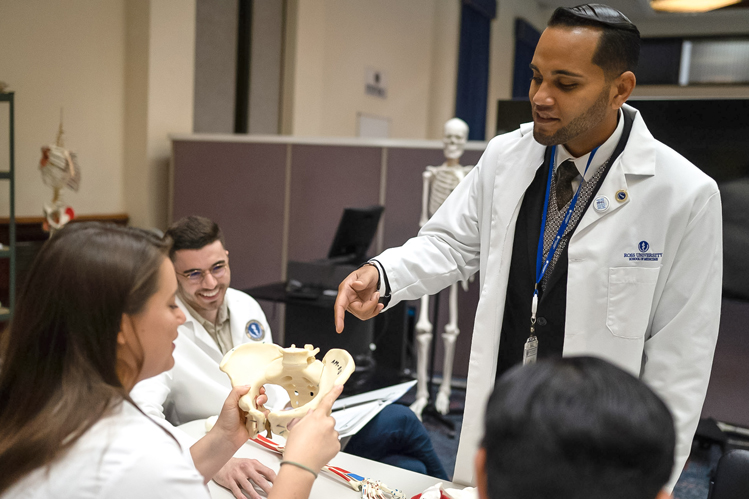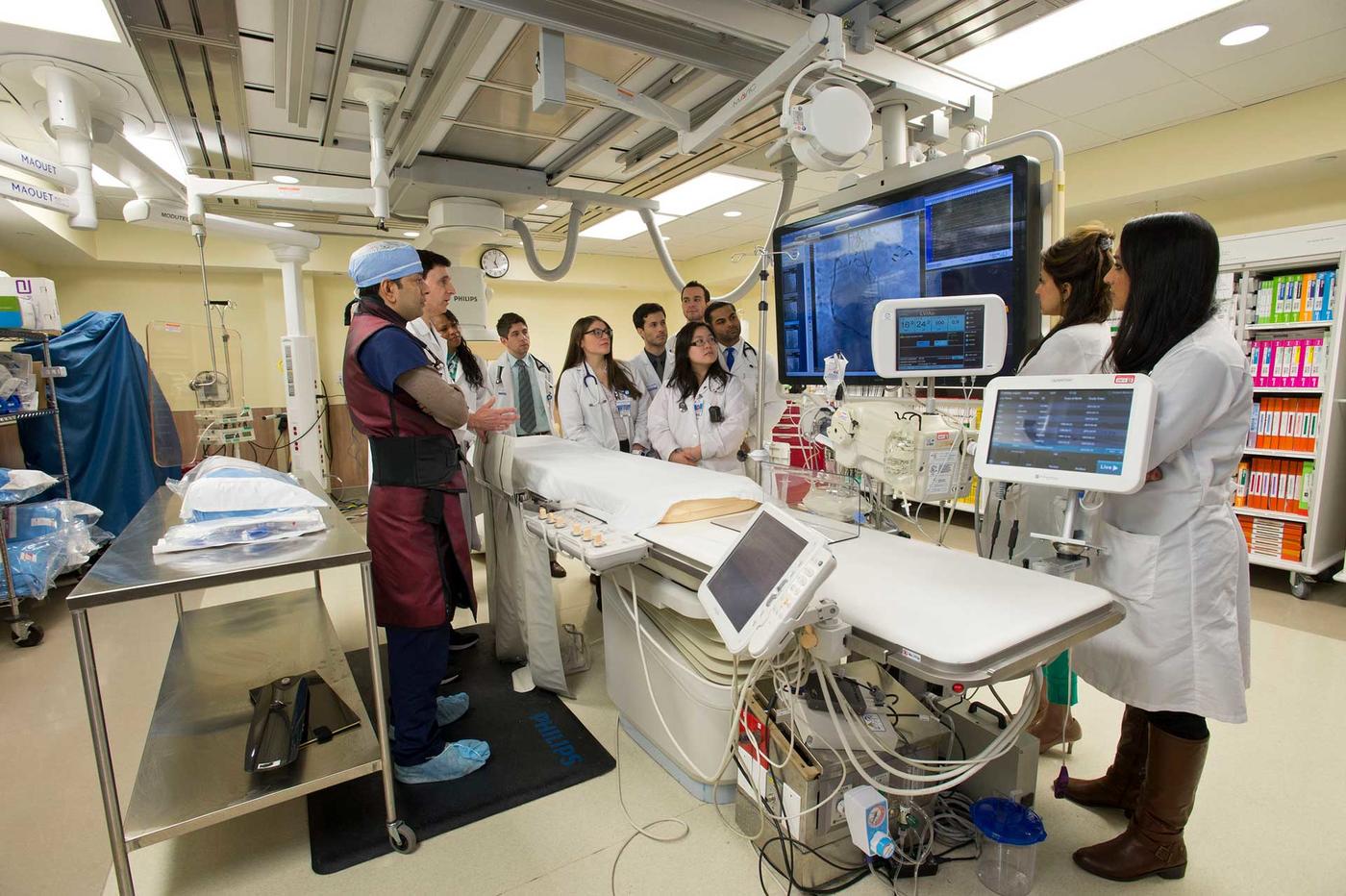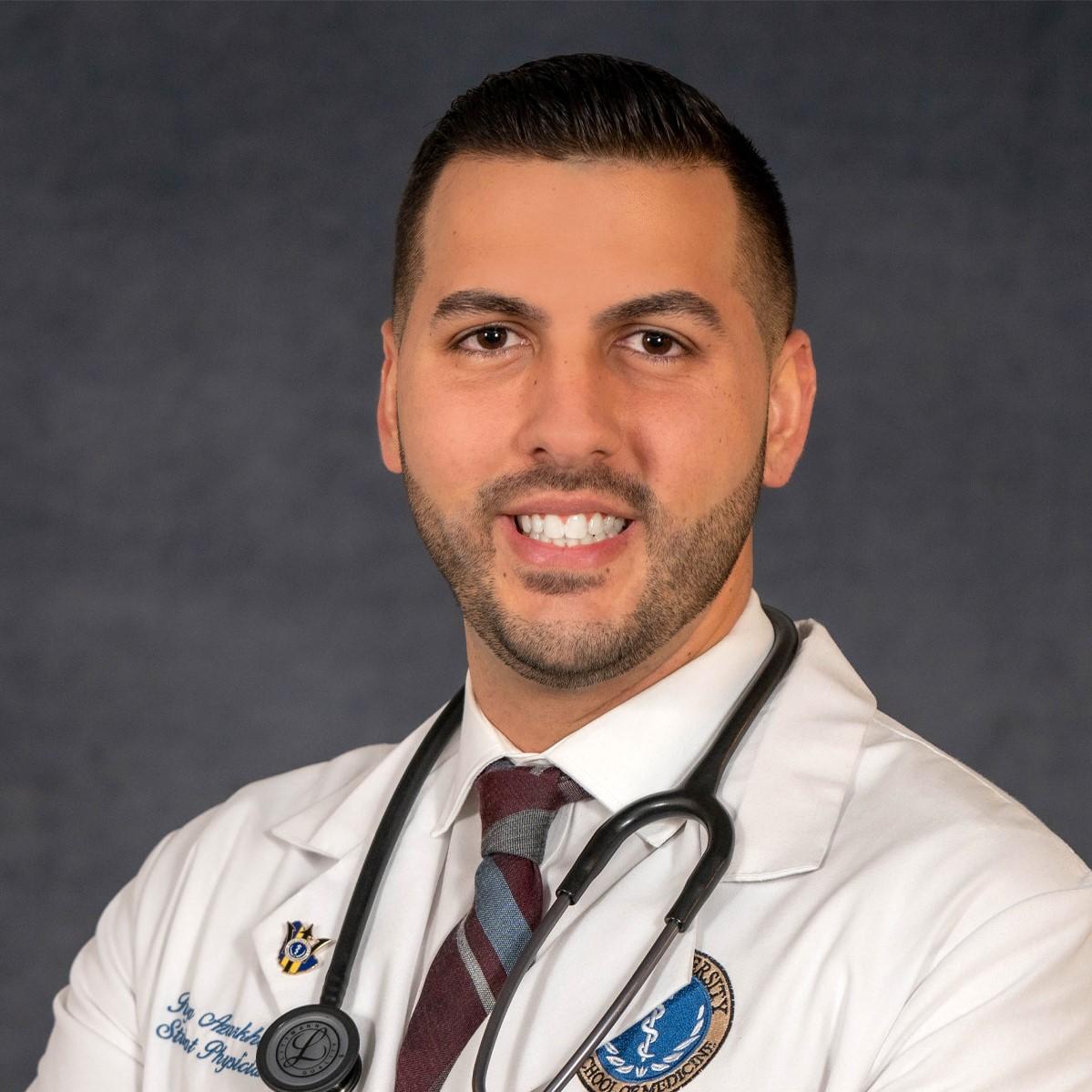Curriculum Overview
The curriculum at Ross University School of Medicine (Ross Med) is designed to help you master medical sciences concepts as you apply them in real-world settings—so you’re prepared for success as you complete your United States Medical Licensing Exam® (USMLE®) and medical school residency.
First, you’ll build an academic foundation through our Medical Sciences curriculum as you apply classroom learning to patient simulations and community health visits. Then, you’ll dive deep into practicing medicine through your Clinical Education rotations.
1First-time residency attainment rate is the percent of students attaining a 2024-25 residency position out of all graduates or expected graduates in 2023-24 who were active applicants in the 2024 NRMP match or who attained a residency position outside the NRMP match.
2 First-time pass rate is the number of students passing the USMLE Step 1 exam on the first attempt divided by the number of students whose first attempt was in 2019-2023. In order to sit for the USMLE Step 1 exam students must successfully complete the Medical Sciences curriculum and earn a satisfactory score on the NBME CBSE exam as listed in the student handbook.
Program Objectives and Competencies
Ross Med prepares you for practice in the modern, ever-changing health care environment by extending the six core competencies of ACGME through all four years of training.
Student Resources
At each stage of medical school training, you will receive support from mentors and advisors. From help with study skills and social engagement in the first year to academic planning, career development and exam preparation, professional academic advisors and career mentors guide you toward a successful career in medicine.



